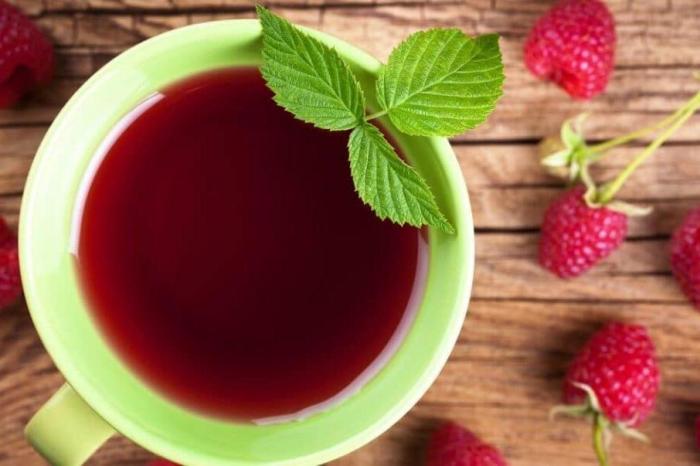Raspberry leaf tea has gained popularity among breastfeeding mothers. It is known for its potential benefits that can support both mother and baby. This article will delve into the various advantages of raspberry leaf tea during breastfeeding.
Nutritional Profile
Raspberry leaf tea is rich in vitamins and minerals. It contains vitamins A, C, E, and K. These vitamins are essential for overall health. They help support the immune system and promote skin health.
The tea also includes important minerals such as calcium, magnesium, and potassium. Calcium is crucial for bone health, while magnesium helps with muscle function and energy production. Potassium is vital for maintaining healthy blood pressure.
All these nutrients can benefit breastfeeding mothers. A well-nourished mother can provide better milk quality for her baby.
Enhancing Milk Production
One of the most significant benefits of raspberry leaf tea is its potential to enhance milk production. Many mothers seek ways to increase their milk supply. Raspberry leaf tea is often recommended for this purpose.
The tea may help stimulate the production of prolactin. Prolactin is the hormone responsible for milk production. By supporting this hormone, raspberry leaf tea can contribute to a more abundant milk supply.
Mothers who drink raspberry leaf tea regularly may notice an increase in their milk output. This can be especially helpful in the early days of breastfeeding when establishing supply is crucial.
Reducing Postpartum Symptoms
Breastfeeding can come with various postpartum symptoms. Some mothers experience discomfort or cramping as their bodies adjust. Raspberry leaf tea may help alleviate some of these symptoms.
The tea has been used traditionally to reduce uterine contractions. This can be beneficial for mothers recovering after childbirth. It may also help ease menstrual cramps for those who experience them after delivery.
Drinking raspberry leaf tea can provide a soothing effect. Many mothers find it calming and comforting during the challenging postpartum period.
Supporting Hormonal Balance
Raspberry leaf tea may play a role in supporting hormonal balance in breastfeeding mothers. Hormonal fluctuations are common after childbirth. These changes can affect mood, energy levels, and milk production.
The nutrients in raspberry leaf tea may help regulate hormones. This can lead to improved emotional well-being. A balanced mood can make breastfeeding more enjoyable and less stressful.
Additionally, a stable hormonal environment can support the body’s natural processes. This is essential for milk production and overall health during breastfeeding.
Hydration and Digestion
Staying hydrated is vital for breastfeeding mothers. Raspberry leaf tea is an excellent way to promote hydration. It is a flavorful alternative to plain water.
Hydration helps maintain milk supply and supports overall health. Drinking raspberry leaf tea can encourage mothers to drink more fluids throughout the day.
Moreover, raspberry leaf tea may aid digestion. Some mothers experience digestive issues during breastfeeding. The tea can help soothe the digestive tract and reduce discomfort.
Improved digestion can lead to better nutrient absorption, which benefits both mother and baby.
Preparing for Weaning
As babies grow, the time for weaning approaches. Raspberry leaf tea can support this transition. It may help ease the process of reducing breastfeeding sessions.
The tea’s calming properties can provide comfort for both mother and baby during weaning. It can also promote a sense of well-being.
Mothers who are preparing to wean may find that raspberry leaf tea helps manage any emotional challenges. This can create a more positive experience for both mother and child.
How to Brew Raspberry Leaf Tea
Brewing raspberry leaf tea is simple. To prepare a cup, follow these steps:
Choose Quality Leaves: Select high-quality dried raspberry leaves. These can be found at health food stores or online.
Boil Water: Start by boiling fresh, filtered water.
Steep the Leaves: Add 1 to 2 teaspoons of dried raspberry leaves to a cup. Pour the boiling water over the leaves and cover.
Steep Time: Let the tea steep for about 5 to 10 minutes. This allows the flavors and nutrients to infuse into the water.
Strain and Enjoy: Strain the tea to remove the leaves. You can add honey or lemon for extra flavor if desired.
Mothers can enjoy raspberry leaf tea warm or iced. Drinking it throughout the day can maximize its benefits.
Precautions and Considerations
While raspberry leaf tea offers several benefits, it is essential to consider a few precautions.
First, always consult a healthcare provider before adding any herbal tea to your diet during breastfeeding. Some herbs may interact with medications or have unintended effects.
Second, moderation is key. Drinking excessive amounts of any herbal tea may lead to unwanted side effects. Aim for 1 to 3 cups a day to reap the benefits without overdoing it.
Lastly, monitor how your body responds to the tea. If you experience any adverse effects, discontinue use and consult a healthcare professional.
See also: What Are The Benefits Of Ajwain Water During Breastfeeding
Conclusion
Raspberry leaf tea can be a valuable addition to a breastfeeding mother’s diet. Its nutritional profile, potential to enhance milk production, and calming effects make it a beneficial choice.
By supporting hydration and hormonal balance, raspberry leaf tea can help mothers navigate the challenges of breastfeeding. As always, it is essential to consult with a healthcare provider to ensure safety and effectiveness.
Incorporating raspberry leaf tea into daily routines can ultimately lead to a more positive breastfeeding experience for both mother and baby.
Related topics:


